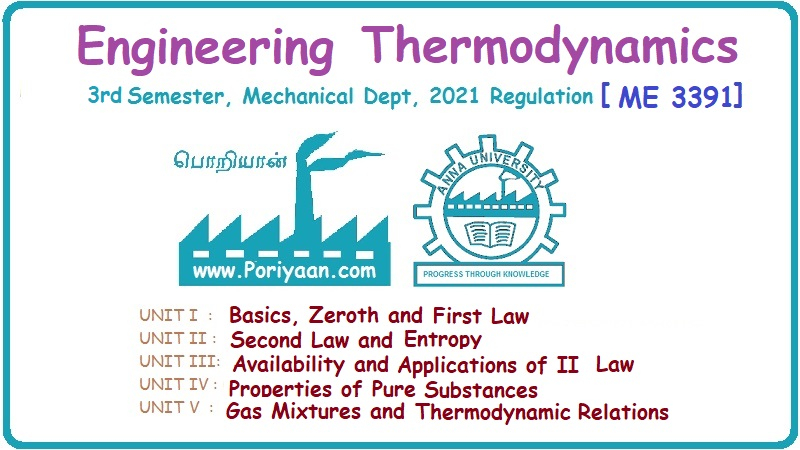Engineering Thermodynamics: Unit IV: Properties of Pure Substances
Introduction to Pure Substance
Engineering Thermodynamics
Pure substance is a substance which has a fixed chemical composition throughout its mass.
Unit-4 PROPERTIES OF PURE SUBSTANCES Steam - formation and its thermodynamic properties -p-v, p- T, T-v, T-s, h-s diagrams. PVT surface. Determination of dryness fraction. Calculation of work done and heat transfer in non-flow and flow processes using Steam Table and Mollier Chart. INTRODUCTION TO PURE SUBSTANCE Pure substance is a substance which has a fixed chemical composition throughout its mass. Examples: Water, nitrogen, carbon dioxide and helium. A pure substance does not have to be of a single chemical element or compound. A mixture of various chemical elements or compounds is called a pure substance as long as the mixture is homogeneous. For example, air is a mixture of several gases but it is considered as a pure substance because it has uniform chemical composition throughout. However, the mixture of oil and water is not a pure substance since oil is not soluble in water. A mixture of two or more phases of a pure substance is also called a pure substance. For example, a mixture of ice and liquid water is a pure substance because both phases have the same chemical composition. But the mixture of air liquid form (vapour) and air in gaseous form is not a pure substance because the chemical composition of vapour is different from the composition of air in gaseous form.
Engineering Thermodynamics: Unit IV: Properties of Pure Substances : Tag: : Engineering Thermodynamics - Introduction to Pure Substance
Related Topics
Related Subjects
Engineering Thermodynamics
ME3391 3rd semester Mechanical Dept | 2021 Regulation | 3rd Semester Mechanical Dept 2021 Regulation
